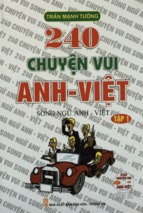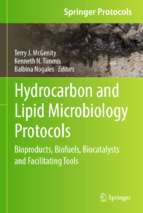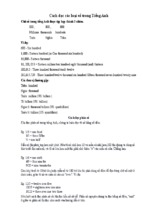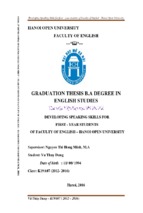Dictionary of
Agriculture
Specialist dictionaries
Dictionary of Accounting
0 7475 6991 6
Dictionary of Banking and Finance
0 7136 7739 2
Dictionary of Business
0 7136 7918 2
Dictionary of Computing
0 7475 6622 4
Dictionary of Economics
0 7136 8203 5
Dictionary of Environment and Ecology
0 7475 7201 1
Dictionary of Human Resources and Personnel Management 0 7136 8142 X
Dictionary of ICT
0 7475 6990 8
Dictionary of Information and Library Management
0 7136 7591 8
Dictionary of Law
0 7475 6636 4
Dictionary of Leisure, Travel and Tourism
0 7475 7222 4
Dictionary of Marketing
0 7475 6621 6
Dictionary of Media Studies
0 7136 7593 4
Dictionary of Medical Terms
0 7136 7603 5
Dictionary of Nursing
0 7475 6634 8
Dictionary of Politics and Government
0 7475 7220 8
Dictionary of Publishing and Printing
0 7136 7589 6
Dictionary of Science and Technology
0 7475 6620 8
Easier English™ titles
Easier English Basic Dictionary
0 7475 6644 5
Easier English Basic Synonyms
0 7475 6979 7
Easier English Dictionary: Handy Pocket Edition
0 7475 6625 9
Easier English Intermediate Dictionary
0 7475 6989 4
Easier English Student Dictionary
0 7475 6624 0
English Thesaurus for Students
1 9016 5931 3
Check Your English Vocabulary workbooks
Academic English
0 7475 6691 7
Business
0 7475 6626 7
Human Resources
0 7475 6997 5
Law
0 7136 7592 6
Medicine
0 7136 7590 X
FCE +
0 7475 6981 9
IELTS
0 7136 7604 3
PET
0 7475 6627 5
Phrasal Verbs and Idioms
0 7136 7805 4
TOEFL®
0 7475 6984 3
TOEIC ®
0 7136 7508 X
Visit our website for full details of all our books: www.acblack.com
Dictionary of
Agriculture
third edition
A & C Black 앫 London
www.acblack.com
First published in Great Britain in 1990, reprinted 1994, 1995
Second edition published 1996, reprinted 1997, 1998
This third edition published 2006
A & C Black Publishers Ltd
38 Soho Square, London W1D 3HB
© A & C Black Publishers Ltd 2006
All rights reserved. No part of this publication may be reproduced
in any form or by any means without the permission of the publishers
A CIP record for this book is available from the British Library
ISBN-10: 0 7136 7778 3
ISBN-13: 978 0 7136 7778 2
eISBN-13: 978-1-4081-0229-9
Text Production and Proofreading
Heather Bateman, Steve Curtis, Katy McAdam
This book is produced using paper that is made from wood grown in
managed, sustainable forests. It is natural, renewable and recyclable. The
logging and manufacturing processes conform to the environmental
regulations of the country of origin
Text typeset by A & C Black
Printed in Italy by Rotolito Lombarda
Preface
This dictionary provides a basic vocabulary of agricultural terms. It is ideal
for students of land management, environmental and veterinary sciences,
and is a handy reference for those working in the agriculture industries,
especially those for whom English is not a first language.
Each headword is explained in clear, straightforward English and quotations
from newspapers and specialist magazines show how the words are used in
context. There are also supplements including conversion tables for weights
and measures and a list of world commodity markets.
Thanks are due to Dr Mark Lyne, Department of Science, Agriculture and
Technology, Writtle College and to Dr Stephen Chadd, Course Director at
the Royal Agricultural College, for their help and advice during the
production of this new edition.
Pronunciation Guide
The following symbols have been used to show the pronunciation of the main
words in the dictionary.
Stress is indicated by a main stress mark ( � ) and a secondary stress mark ( � ) . Note
that these are only guides, as the stress of the word changes according to its position
in the sentence.
Vowels
�
ɑ�
ɒ
ai
aυ
aiə
aυə
ɔ�
ɔi
e
eə
ei
eυ
��
i�
i
ə
i
iə
u
u�
υ
υə
�
back
harm
stop
type
how
hire
hour
course
annoy
head
fair
make
go
word
keep
happy
about
fit
near
annual
pool
book
tour
shut
Consonants
b
d
ð
d
f
�
h
j
k
l
m
n
ŋ
p
r
s
ʃ
t
tʃ
θ
v
w
x
z
buck
dead
other
jump
fare
gold
head
yellow
cab
leave
mix
nil
sing
print
rest
save
shop
take
change
theft
value
work
loch
measure
zone
Pronunciation is given only for technical entries. For a full guide to pronunciation
of all basic words and phrases, the A & C Black Easier English Intermediate
Dictionary (0-7475-6989-4, £9.99) is recommended.
Agriculture.fm Page 1 Tuesday, July 11, 2006 12:33 PM
A
AA abbreviation Arboricultural AssociaAA
tion
AAPP abbreviation Average All Pigs
AAPP
Price
AAPS
AAPS
abbreviation
Arable
Area
Payments Scheme
Abandonment of Animals Act
1960 noun an Act of Parliament which
made it an offence to leave an animal unattended if this was likely to cause distress or
pain to the animal
abattoir noun a place where animals are
slaughtered and prepared for sale to the
public as meat
abdomen noun a space in the body situated below or behind the diaphragm and
above or in front of the pelvis, containing
the stomach, intestines, liver and other
vital organs
Aberdeen Angus /��bədi�n ��ŋ�əs/
noun an early maturing breed of beef
cattle, which are naturally hornless and
usually black all over. Aberdeen Angus
cattle usually have a rather small headed
and a long deep body. They are highly
valued for quality beef.
abiotic /�eibai�ɒtik/ adjective not
relating to a living organism 쑗 abiotic
factors
abiotic stress noun stress caused by
environmental factors such as drought or
extreme heat or cold, not by biological
factors
abattoir
abdomen
Aberdeen Angus
abiotic
|
abiotic stress
abiotic
stress
resistance noun
resistance in organisms to stress arising
from non-biological causes such as
drought
abomasal ulcer /��bəυmeis(ə)l ��lsə/
noun a disease common in both calves and
adult cattle. Calves show poor growth and
lose appetite. In rare cases, cows may bleed
to death.
abomasal ulcer
abomasum /��bəυ�meisəm/ noun the
fourth stomach of a ruminant. 쒁 omasum,
|
reticulum, rumen
abort verb 1. to stop a process or the
abort
Abandonment of Animals Act 1960
abiotic stress resistance
abomasum
development of something before it is
finished, or to stop developing 쑗 The
flowers abort and drop off in hot, dry
conditions, with no fruit developing. 2. to
end a pregnancy in an animal and prevent
the birth of young 3. to give birth before
the usual end of a pregnancy (technical)
Also called miscarry
abortion noun a situation when a pregnancy in a farm animal ends prematurely,
generally as the result of a disease or infection (technical)
abreast parlour /ə�brest �pɑ�lə/ noun a
type of milking parlour where the cows
stand side by side with their heads facing
away from the milker. 쒁 herringbone
abortion
abreast parlour
|
parlour, rotary parlour
abscess
abscess noun a painful swollen area
where pus forms
abscission /�b�siʃ(ə)n/ noun the shedding of a leaf or fruit due to the formation
of a layer of cells between the leaf or fruit
and the rest of the plant (NOTE: It occurs
abscission
|
naturally in autumn, e.g. leaf fall, or at any
time of the year in response to stress.)
absorb verb to take something in 쑗 Warm
absorb
air absorbs moisture more easily than cold
air. 쑗 Salt absorbs moisture from the air.
absorption noun 1. the process of taking
in water, dissolved minerals and other
nutrients across cell membranes 2. the
taking into the body of substances such as
proteins or fats which have been digested
from food and enter the bloodstream from
the stomach and intestines 3. the taking up
of one type of substance by another, e.g. of
a liquid by a solid or of a gas by a liquid
absorption
Agriculture.fm Page 2 Tuesday, July 11, 2006 12:33 PM
abstract
2
abstract /�b�str�kt/ verb to remove
water from a river so that it can be used by
industry, farmers or gardeners
abstraction /�b�str�kʃən/ noun 1. the
removal of water from a river or other
source for use by industry, farmers or
gardeners 2. the removal of something
such as gas, oil, mineral resources or gravel
from the ground
Acacia /ə�keiʃə/ noun a species of tree
often grown for its pretty leaves and blossoms
ACAF abbreviation Advisory Committee
on Animal Feedingstuffs
acariasis /��kə�raiəsis/ noun a skin
disease caused by ticks or mites
acaricide /ə�k�risaid/ noun a substance
used to kill mites and ticks. Also called
abstract
|
abstraction
|
Acacia
|
ACAF
acariasis
|
acaricide
|
acaridicide
acarid /��kərid/ noun a small animal
acarid
which feeds on plants or other animals by
piercing the outer skin and sucking juices,
e.g. a mite or tick
Acarida /ə�k�ridə/ noun the order of
animals including mites and ticks. Also
called Acarina
acaridicide /��kə�ridisaid/ noun same
as acaricide
Acarina /��kə�ri�nə/ noun same as
Acarida
|
acaridicide
|
Acarina
|
Acarida
|
accommodation land
accommodation land noun land
available for short-term tenancy
accredit /ə�kredit/ verb to recognise
officially
accredited herd noun a herd of cattle
registered under a scheme as being free
from Brucellosis
accredited milk noun milk from a herd
accredited as being free from Brucellosis
accumulated temperature noun the
number of hours during which the temperature is above a particular point, taken as
the minimum temperature necessary for
growing a specific crop (NOTE: In the UK,
accredit
|
accredited herd
accredited milk
accumulated temperature
this is usually taken to be the number of
hours above 6°C.)
acer /�eisə/ noun a maple or sycamore
acer
tree. Genus: Acer.
acetonaemia /ə�si�təυ�ni�miə/ noun a
acetonaemia
ACAS /�eik�s/ abbreviation Advisory,
|
ACAS
Conciliation and Arbitration Service
ACC abbreviation Agricultural Credit
Corporation
acceptable daily intake noun the
quantity of a substance such as a nutrient,
vitamin, additive or pollutant which a
person or animal can safely consume daily
over their lifetime. Abbr ADI
‘A UK wide consultation on the use of the
colourant canthaxanthin in animal feed,
used to give farmed salmon its pink
colour, has been launched by the Food
Standards Agency. Brussels’ Scientific
Committee on Animal Nutrition said:
“Some consumers of high levels of
produce from farmed fish were likely to
exceed the acceptable daily intake for
canthaxanthin”.’ [The Grocer]
access noun 1. a place of entry, or the
right of entry, to somewhere 2. the right of
the public to go onto uncultivated private
land for recreation. 쒁 Countryside and
ACC
acceptable daily intake
access
Rights of Way Act
acclimatisation
/��klə�meiʃ(ə)n/ noun the process of
adapting to a different environment (NOTE:
This process is known as acclimatisation
if the changes occur naturally and acclimation if they are produced in laboratory
conditions.)
COMMENT: When an organism such as a
plant or animal is acclimatising, it is
adapting physically to different environmental conditions, such as changes in
food supply, temperature or altitude.
/ə�klaimətai
�zeiʃ(ə)n/, acclimatization, acclimation
acclimatisation
|
|
|
disease affecting cows, caused by ketone
bodies accumulating. The animal loses
appetite and the smell of acetone affects
the breath, the urine and milk.
acetone noun a colourless liquid that has
a sweetish smell and is flammable, used as
a solvent and in the manufacture of organic
chemicals. Formula: CH3COCH3.
achene /ə�ki�n/ noun a dry single-seeded
fruit that does not split open (NOTE:
acetone
achene
|
Achenes are produced by plants such as
dandelions and sunflowers.)
acid noun 1. a chemical compound
acid
containing hydrogen which dissolves in
water and forms hydrogen ions, or reacts
with an alkali to form a salt and water, and
turns litmus paper red 2. any bitter juice
acid deposition /��sid �depə�ziʃ(ə)n/
noun same as acid rain
acid grassland noun a type of vegetation that typically grows on soils that drain
freely and are low in mineral nutrients, and
may also occur on post-industrial sites.
The range of plant species found is small. 쒁
acid deposition
|
acid grassland
calcareous grassland
Agriculture.fm Page 3 Tuesday, July 11, 2006 12:33 PM
3
acidic
activated sludge
acid soil noun soil which has a pH value
acidic adjective referring to acids 쑗 acidic
acid soil
properties
of 6 or less (NOTE: Farming tends to make
the soil more acid, but most farm crops will
not grow well if the soil is very acid. This
can be cured by applying one of the materials commonly used for adding lime, such
as ground chalk or limestone.)
ACOS abbreviation Advisory Committee
acidification
acidification /ə�sidifi�keiʃ(ə)n/ noun
|
|
the process of becoming acid or of making
a substance more acid 쑗 Acidification of
the soil leads to the destruction of some
living organisms.
acidify /ə�sidifai/ verb to make a
substance more acid, or to become more
acid 쑗 Acid rain acidifies the soils and
waters where it falls. 쑗 The sulphur
released from wetlands as sulphate causes
lakes to acidify. (NOTE: Feed additives can
acidify
|
be used to acidify animals’ urine, which
makes them less susceptible to infections
of the urinary tract.)
ACOS
on Organic Standards
ACP abbreviation Advisory Committee
on Pesticides
ACPAT abbreviation Association of Chartered Physiotherapists in Animal Therapy
ACP states /�ei si� �pi� �steits/ 쏡 Lomé
ACP
ACPAT
ACP states
Convention
ACR abbreviation
ACR
automatic
cluster
acidity
acidity noun the proportion of acid in a
removal
substance 쑗 The alkaline solution may help
to reduce acidity.
acre noun a unit of measurement of land
area, equal to 4840 square yards or 0.4047
hectares
ACRE /�eikə/ abbreviation Advisory
Committee on Releases to the Environment
acreage /�eikərid�/ noun the area of a
piece of land measured in acres
acreage allotment noun a quota
system operated in the USA, which limits
the area of land which can be planted with
a certain type of crop
COMMENT:
Acidity and alkalinity are
measured according to the pH scale.
pH7 is neutral. Numbers above pH7
show alkalinity, while those below show
acidity.
acidophilus milk
acidophilus milk /��si�dɒfiləs �milk/
|
noun a cultured milk made from fresh milk
which is allowed to go sour in a controlled
way. One of the most popular types of
acidophilus milk in Europe is yoghurt.
acidosis /��si�dəυsis/ noun an unusually high proportion of acid waste products
such as urea in the blood, sometimes
caused by a metabolic dysfunction (NOTE:
acidosis
|
As acidity increases the rumen wall
becomes inflamed. The animal dehydrates
progressively, the blood turns more acidic
and in extreme cases the animal may die.)
acid rain
acid rain noun precipitation such as rain
or snow which contains a higher level of
acid than normal. Also called acid deposition, acid precipitation
COMMENT: Acid rain is mainly caused by
sulphur dioxide, nitrogen oxide and other
pollutants being released into the atmosphere when fossil fuels such as oil or
coal containing sulphur are burnt. Carbon combines with sulphur trioxide from
sulphur-rich fuel to form particles of an
acid substance. The effects of acid rain
are primarily felt by wildlife. The water in
lakes becomes very clear as fish and
microscopic animal life are killed. It is
believed acid rain kills trees, especially
conifers, making them gradually lose
their leaves and die. Acid rain can also
damage surfaces such as the stone surfaces of buildings when it falls on them.
acre
ACRE
acreage
acreage allotment
acreage
acreage reduction programme
reduction
programme
noun an American federal programme
under which farmers are only eligible for
subsidies if they reduce the acreage of
certain crops planted. Abbr ARP (NOTE:
The British equivalent is set-aside.)
actinobacillosis
/��ktinəυb�si
�ləυsis/ noun a disease of cattle affecting
actinobacillosis
|
the tongue and throat. It also occurs in
sheep as swellings on the lips, cheeks and
jaws. Also called cruels, wooden tongue
actinomycete /��ktinəυ�maisi�t/ noun
a bacterium shaped like a rod or filament.
Order: Actinomycetales. (NOTE: Some
actinomycete
|
actinomycetes cause diseases while
others are sources of antibiotics.)
actinomycosis /��ktinəυmai�kəυsis/
noun a disease of cattle and pigs, where the
actinomycosis
|
animal is infected with bacteria which
form abscesses in the mouth and lungs.
Also called lumpy jaw
activate verb to start a process or to make
something start working 쑗 Pressing this
switch activates the pump.
activated sludge noun solid sewage
containing active microorganisms and air,
activate
activated sludge
Agriculture.fm Page 4 Tuesday, July 11, 2006 12:33 PM
activator
4
mixed with untreated sewage to speed up
the purification process
activator /��ktiveitə/ noun a substance
which activates a process 쑗 a compost activator
active ingredient noun the main effective ingredient of something such as an
ointment or agrochemical, as opposed to
the base substance. Abbr AI
actuals /��ktʃuəlz/ plural noun stocks of
commodities such as cotton or rice which
are available for shipping. Compare
activator
active ingredient
actuals
futures
acute adjective 1. referring to a disease
acute
which comes on rapidly and can be
dangerous 쑗 acute mastitis 2. referring to a
pain which is sharp and intense 쑗 acute
stomach pain 왘 compare chronic
ADAS /�eid�s/ noun a commercial
research-based organisation that offers
technical advice on agricultural, food and
environmental matters to rural industries.
Former name Agricultural Development
ADAS
and Advisory Service
ADP abbreviation Agricultural DevelopADP
ment Programme
ADRA abbreviation Animal Diseases
Research Association
adrenal gland /ə�dri�n(ə)l �l�nd/ noun
one of two endocrine glands at the top of
the kidneys which produce adrenaline and
other hormones
adrenaline /ə�drenəlin/ noun a
hormone secreted by the medulla of the
adrenal glands which has an effect similar
to stimulation of the sympathetic nervous
system (NOTE: The US term is epineADRA
adrenal gland
|
adrenaline
|
phrine.)
ADS abbreviation Agriculture DevelopADS
ment Scheme
adsorb /�d�zɔ�b/ verb (of a solid) to
adsorb
|
bond with a gas or vapour which touches
its surface
adsorbable /əd�zɔ�bəb(ə)l/ adjective
referring to a gas or vapour which is able to
bond with a solid when it touches its
surface
adsorbent /əd�zɔ�bənt/ adjective able
to adsorb something such as a gas or
vapour
adulterate /ə�d�ltəreit/ verb to reduce
the quality of something, such as by adding
water to milk
advanced register noun a book which
records
breeding
performance
of
outstanding livestock
adventitious /��dvən�tiʃəs/ adjective
referring to a root which develops from a
node on a plant stem and not from another
root
adsorbable
|
adsorbent
additive noun 1. a chemical which is
additive
|
added to food to improve its appearance or
to keep it fresh 쑗 The tin of beans contains
a number of additives. 쑗 These animal
foodstuffs are free from all additives. 2. a
chemical which is added to something to
improve it 쑗 A new fuel additive made from
plants could help reduce energy costs. 3. a
substance which is added to animal feedingstuffs to provide antibiotics, mineral
supplements, vitamins or hormones
addled egg /��d(ə)ld e�/ noun a rotten
egg, an egg which produces no chick
ADHAC
abbreviation
Agricultural
Dwelling House Advisory Committee
ADI abbreviation acceptable daily intake
adipose /��dipəυs/ adjective containing
or made of fat
adipose tissue noun a type of tissue
where the fibrous parts of cells are replaced
by fat when too much food is eaten
Adjusted Eurospec Average /ə
�d��stid �jυərəυspek ��v(ə)rid�/ noun
formerly, the average price for pigs. It was
replaced in 2003 by the Deadweight
Average Pig Price. Abbr AESA
ad lib feeding /��d �lib �fi�diŋ/ noun
the unrestricted supply of feed, day and
night
admixture /��dmiktʃə/ noun the
proportion of a seed crop which is made up
of weed seeds or other crop species
addled egg
adulterate
|
advanced register
adventitious
|
ADHAC
ADI
adipose
adipose tissue
Adjusted Eurospec Average
|
ad lib feeding
admixture
Advisory, Conciliation and Arbitration Service noun an organisation
Advisory, Conciliation and Arbitration Service
which advises on employment disputes
and rights in the workplace. Abbr ACAS
Advisory Committee on Animal
Feedingstuffs noun a committee set up
Advisory Committee on Animal Feedingstuffs
by the Food Standards Agency in 1999 to
advise on health and safety in animal feeds
and feeding practices. Abbr ACAF
Advisory Committee on Organic
Standards noun a non-departmental
Advisory Committee on Organic Standards
public body set up by the Government to
advise ministers on organic standards.
Abbr ACOS
Advisory Committee on Pesticides noun a statutory body set up under
Advisory Committee on Pesticides
the UK Food and Environment Protection
Act 1985 to advise on all matters relating
to the control of pesticides. Abbr ACP
Agriculture.fm Page 5 Tuesday, July 11, 2006 1:30 PM
5
Advisory Committee on Releases
to the Environment noun an indeAdvisory Committee on Releases to the Environment
pendent advisory committee giving statutory advice to UK government ministers on
the risks to human health and the environment from the release and marketing of
genetically modified organisms (GMOs).
It also advises on the release of some nonGM species of plants and animals that are
not native to Great Britain. Abbr ACRE
AEA abbreviation Agricultural Engineers
Association
AEBC abbreviation Agriculture, Environment and Biotechnology Commission
aerate /�eəreit/ verb to allow air to enter
a substance, especially soil or water 쑗
Worms play a useful role in aerating the
soil.
aeration /eə�reiʃ(ə)n/ noun the replacement of stagnant soil air with fresh air
‘Soil nutrient availability can also be
influenced by compaction as one of the
main effects of compaction is on soil
aeration, which can lead to de-nitrification
(loss of nitrogen into the atmosphere).’
[Arable Farming]
AEA
AEBC
aerate
aeration
|
COMMENT: The process of aeration of soil
is mainly brought about by the movement of water into and out of the soil.
Rainwater drives out the air and then, as
the water drains away or is used by
plants, fresh air is drawn into the soil to
fill the spaces. The aeration process is
also assisted by changes in temperature, good drainage, cultivation and open
soil structure. Sandy soils are usually
well aerated. Clay soils are poorly aerated.
aerial adjective referring to something
aerial
which exists in the air
introduced. 2. the planting of trees on land
previously used for other purposes
aflatoxin /��flə�tɒksin/ noun a toxin
produced by species of the fungus
Aspergillus, especially Aspergillus flavus,
which grows on seeds and nuts and affects
stored grain
African swine fever /��frikən �swain
�fi və/ noun a virus disease which is highly
contagious among pigs. Animals suffer
fever and high temperature followed by
death. In Europe, it occurs in parts of
Spain.
AFS abbreviation Assured Food Standards
afterbirth /�ɑ ftəb� θ/ noun the remains
of the placenta pushed out of the uterus of
the dam at the birth of a young animal.
Also called cleansing
aftermath noun grass which grows
quickly after cutting for hay, and which
will provide a second cut
agalactia /�ei
ə�l�ktiə/ noun a disease
of pigs, a form of post-farrowing shock.
The sow does not secrete milk.
agbiotech
/��
�baiəυtek/
noun
biotechnology applied to agriculture or an
agricultural industry
age noun the number of years during
which a person or thing has existed 쑗 The
size varies according to age. 쐽 verb to treat
flour to make the dough more elastic and
whiter
agglutination /ə�
lu ti�neiʃ(ə)n/ noun
a process in which cells come together to
form clumps. For example, agglutination
takes place when bacterial cells are in the
presence of serum or affects blood cells
when blood of different types is mixed.
agglutination tests plural noun 1. tests
to identify bacteria 2. tests used to detect
Brucellosis in cattle
aggregate noun a mass of soil and rock
particles stuck together
aflatoxin
|
African swine fever
AFS
afterbirth
aftermath
agalactia
|
agbiotech
|
age
agglutination
|
|
agglutination tests
aerial root noun a root of some plants,
aerial root
which hangs above the ground or clings to
other plants so that it can take up moisture
from the air
aerobic adjective needing oxygen for its
existence or for a biochemical reaction to
occur. Compare anaerobic
AESA abbreviation Adjusted Eurospec
Average
AFB abbreviation American foul brood
afforest /ə�fɒrist/ verb to plant an area
with trees
afforestation /ə�fɒri�steiʃ(ə)n/ noun 1.
the planting of trees in an area or as a crop
쑗 There is likely to be an increase in afforestation of upland areas if the scheme is
aerobic
AESA
AFB
afforest
|
afforestation
|
agistment
|
aggregate
aggregate measure of support
aggregate measure of support
noun an index which shows the actual
monetary value of the support given by the
Government to a sector such as agriculture.
Abbr AMS
agist /ə�d�ist/ verb to take another
person’s livestock to feed on your land
agistment /ə�d�istmənt/ noun money
paid for grazing stock on land owned by
another person. The owner of the land is
responsible for the feeding and care of the
livestock.
agist
|
agistment
|
Agriculture.fm Page 6 Tuesday, July 11, 2006 12:33 PM
agitator
6
agitator /��d�iteitə/ noun the part of a
agitator
machine for harvesting root crops, such as
potatoes, which shakes the earth off the
crop after it has been lifted
agrarian /ə��reəriən/ adjective referring
to matters of land tenure and problems
arising from land ownership
agri- /��ri/ prefix referring to agriculture
or to the cultivation or management of
land. 쒁 agroagri-biotechnology noun biotechnology as applied to agriculture
agribusiness /���ribiznəs/ noun a
large-scale farming business run along the
lines of a conventional company, often
involving the processing, packaging and
sale of farm products
‘The Committee of Public Accounts has
told Defra that farm business support
should be targeted at those enterprises
which need it most. This means smaller
and intermediate sized farming businesses
run by families and individuals, rather
than large agribusinesses.’ [Farmers
Guardian]
agricultural adjective referring to
farming
agrarian
|
agri-
agri-biotechnology
agribusiness
agricultural
Agricultural and Food Research
Council noun formerly, a council estabAgricultural and Food Research Council
lished to organise and provide funds for
agricultural and food research. It was
replaced by the Biotechnology and Biological Sciences Research Council in 1993.
Abbr AFRC
agricultural burning noun the burning
of agricultural waste as part of farming
practice, e.g. stubble burning
agricultural burning
Agricultural Chemicals Approval
Scheme noun a scheme which gave
Agricultural Chemicals Approval Scheme
advice to farmers on the use and efficiency
of chemicals and which tested chemicals
before use by farmers. It was operated by
the Agricultural Chemicals Approved
Organisation and was a voluntary scheme
which has now been replaced by the FEPA
legislation. Abbr ACAS
agricultural
agricultural depopulation
depopulation
/���rik�tʃ(ə)rəl
�di�pɒpjυ�leiʃ(ə)n/
noun the fact of people leaving farms to
|
live and work elsewhere
Agricultural Development and
Advisory Service noun former name
Agricultural Development and Advisory Service
for ADAS
Agricultural
Development
Programme noun a plan to improve the
Agricultural Development Programme
agricultural productivity of a community
through training and modernisation of
equipment. Abbr ADP
agricultural economist noun a person
who studies the economics of the agricultural industry
agricultural engineer noun 1. a
person trained in applying the principles of
science to farming 2. a person who
designs, manufactures or repairs farm
machinery and equipment
agricultural engineering noun the
applying of the principles of science to
farming
agricultural economist
agricultural engineer
agricultural engineering
Agricultural Engineers Association noun an organisation which protects
Agricultural Engineers Association
the interests of manufacturers and
suppliers of agricultural machinery in the
UK. Abbr AEA
agricultural holding noun a basic unit
for agricultural production, consisting of
all the land and livestock under the
management of one particular person or
group of people
agricultural holding
Agricultural Holdings Act 1984
Agricultural Holdings Act 1984
noun an Act of Parliament which gives
protection to tenants in questions of the
fixing of rent and security of tenure. It
makes provision for tenancies for a life
time and for short-term lettings.
Agricultural Industries Confederation noun a trade association for suppliers
Agricultural Industries Confederation
of feed, fertilisers, seeds and grain to the
agricultural sector. Abbr AIC
agriculturalist /���ri�k�ltʃ(ə)rəlist/
noun a person trained in applying the principles of science to farming
agricultural labourer noun a person
who does heavy work on a farm, formerly
a rural worker with no land, and sometimes
still a worker with a special skill, such as
ditching or hedging
Agricultural Land Tribunal noun a
court established in 1947 to hear appeals
against decisions affecting owners or
tenants of agricultural land
agriculturalist
|
agricultural labourer
Agricultural Land Tribunal
Agricultural Mortgage Corporation noun a corporation which makes
Agricultural Mortgage Corporation
loans available to borrowers on the security
of agricultural land and buildings in
England and Wales
agricultural policy noun the decisions
and commitments that make up a government’s attitude to and programme for agriculture
Agricultural Revolution noun the
changes in agriculture which transformed
agricultural policy
Agricultural Revolution
Agriculture.fm Page 7 Tuesday, July 11, 2006 12:33 PM
7
agrochemicals
Britain’s countryside in the 18th and 19th
centuries
ment, animal welfare and rural development in Wales. Abbr ARAD
Agricultural Stabilization and Conservation Service
Agricultural Stabilization and
Conservation Service noun formerly,
Agriculture Industry Advisory Committee
a service of the federal Department of
Agriculture which operated the department’s various schemes throughout the
USA. It was incorporated into the Farm
Service Agency in 1993. Abbr ASCS
Agricultural Wages Board noun a
board which fixes minimum wages and
holiday entitlements for agricultural
workers, and deals with terms and conditions of their employment. Abbr AWB
agricultural waste noun waste matter
produced on a farm, e.g. plastic containers
for pesticides
advises the Health and Safety Commission
on the protection of people at work and
others from hazards to health and safety
arising within the agricultural and related
industries
Agricultural Wages Board
agricultural waste
Agricultural Waste Stakeholders’
Forum noun a group that includes repreAgricultural Waste Stakeholders’ Forum
sentatives of government, farming organisations, waste companies and farm
suppliers with the aim of identifying and
dealing with issues of waste management
in agriculture
agriculture noun the cultivation of land,
including horticulture, fruit growing, crop
and seed growing, dairy farming and livestock breeding
agriculture
COMMENT:
The use of land to raise crops
for eating first started about 10,000
years ago. All plants grown for food have
been developed over many centuries
from wild plants, which have been progressively bred to give the best yields in
different types of environment. Genes
from wild plants are likely to be more
hardy and resistant to disease, and are
still kept in gene banks to strengthen
new cultivated varieties.
Agriculture, Environment and
Biotechnology Commission noun
Agriculture, Environment and Biotechnology Commission
the UK government advisory body on
biotechnology issues affecting agriculture
and the environment
Agriculture (Miscellaneous Provisions) Act 1968 noun an Act of ParliaAgriculture Act 1968
ment which defines what constitutes livestock and makes it an offence to cause
unnecessary pain or distress to a farm
animal
Agriculture Acts plural noun Acts of
Parliament, introduced to update legislation affecting agricultural policy
Agriculture Acts
Agriculture and Rural Affairs
Department noun the department of the
Agriculture and Rural Affairs Department
devolved Welsh Assembly government
which deals with farming, the environ-
Agriculture Industry Advisory
Committee noun the committee that
‘Agriculture in the United Kingdom’
‘Agriculture
in
the
United
Kingdom’ noun a review undertaken
each year by the British government,
reporting on the state of the agricultural
industry (NOTE: Formerly called the
Annual Review of Agriculture.)
agri-environmental indicator
agri-environmental indicator noun
an indicator designed to provide information on the various ways in which agriculture affects the environment
agri-environment scheme noun a
scheme to give money to farmers to
persuade them to adopt land management
practices that benefit the environment, e.g.
the Environmental Stewardship Scheme
agri-food adjective relating to industries
which are involved in the mass production,
processing and inspection of food products
made from agricultural commodities
‘The agri-food industry in Wales is
already growing at a faster rate than in any
other part of the UK with employment in
the Welsh food sector since 1998 showing
a 1.7 per cent increase compared to a 5.2
per cent fall in the rest of Great Britain.’
[Farmers Guardian]
agri-tourism noun a type of tourism
where visitors can help out on a working
farm, buy produce from a farm shop or be
involved in other leisure activities on the
farm’s land
agro- /���rəυ/ prefix referring to agriculture or to the cultivation or management of
land. 쒁 agriagrobiodiversity
/���rəυbaiəυdai
�v��siti/ noun the aspects of biodiversity
that affect agriculture and food production,
including within-species, species and
ecosystem diversity
agri-environment scheme
agri-food
agri-tourism
agro-
agrobiodiversity
|
agrochemical industry
agrochemical
industry
/���rəυkemik(ə)l �indəstri/ noun the
branch of industry which produces pesticides and fertilisers used on farms
agrochemicals /���rəυ�kemik(ə)lz/
plural noun pesticides and fertilisers developed for agricultural use
agrochemicals
|
Agriculture.fm Page 8 Tuesday, July 11, 2006 12:33 PM
agroclimatology
8
agroclimatology
/���rəυklaimə
�tɒləd�i/ noun the study of climate and its
effect on agriculture
agroecology /���rəυi�kɒləd�i/ noun
the ecology of a crop-producing area
agroecosystem /���rəυ�i�kəυsistəm/
noun a community of organisms in a cropproducing area
agroforestry /���rəυ�fɒristri/ noun the
growing of farm crops and trees together as
a farming unit
agroindustry /���rəυ�indəstri/ noun
an industry dealing with the supply,
processing and distribution of farm products
agronomist /ə��rɒnəmist/ noun a
person who studies the cultivation of crops
and provides advice to farmers
agronomy /ə��rɒnəmi/ noun the scientific study of the cultivation of crops
AHDO abbreviation Animal Health Divisional Office
AHO abbreviation 1. Animal Health
Office 2. Animal Health Officer
A horizon noun topsoil. 쒁 horizon
AI1 abbreviation 1. active ingredient 2.
artificial insemination
AI2 /�ei �ai/ verb to inseminate an animal
artificially 쑗 Twenty ewes were AI’d.
AIAC abbreviation Agriculture Industry
Advisory Committee
AIC abbreviation Agricultural Industries
Confederation
AI centre noun a centre which keeps
breeding bulls, boars and rams, and quantities of their semen for use in artificial
insemination
air layering noun a method of propagation where a stem is partially cut, then
surrounded with damp moss, which is tied
securely to the stem. Roots will grow from
the cut at the point where it is in contact
with the moss.
air pollution noun the contamination of
the air by substances such as gas or smoke.
Also called atmospheric pollution (NOTE:
agroclimatology
|
agroecology
|
agroecosystem
|
agroforestry
|
agroindustry
|
agronomist
|
agronomy
|
AHDO
AHO
A horizon
AI
AI
AIAC
AIC
AI centre
air layering
air pollution
Odour nuisance from livestock units and
other farming activities is governed by the
Environmental Protection Act. The burning
of agricultural crop residues is now
banned.)
significantly reducing air pollution.’
[Farmers Weekly]
albinism /��lbiniz(ə)m/ noun an inherited lack of pigmentation in an organism
albinism
(NOTE: A person or animal with albinism
has unusually white skin and hair.)
albino /�l�bi�nəυ/ noun an organism that
albino
|
is unusually white, having little or no
pigmentation in its skin, hair or eyes
because it is deficient in the colouring
pigment melanin
albumen /��lbjυmin/ noun the white of
an egg, containing albumin
albumin /��lbjυmin/ noun a common
protein, soluble in water and found in plant
and animal tissue and digested in the intestine
albumose /��lbjυməυz/ noun an intermediate product in the digestion of protein
ALC abbreviation agricultural land classification
alder /�ɔ�ldə/ noun a hardwood tree in the
birch family. Genus: Alnus. (NOTE: The
albumen
albumin
albumose
ALC
alder
wood is resistant to decay in wet conditions.)
aldosterone /�l�dɒstərəυn/ noun a
aldosterone
|
hormone secreted by the adrenal gland
which regulates the balance of sodium and
potassium in the body and the amount of
body fluid
aldrin /�ɔ�ldrin/ noun an organochlorine
insecticide that is banned in the European
Union
aleurone /��lu�rəυn/ noun a protein
found in the outer skin of seeds
alfalfa /�l�f�lfə/ noun same as lucerne
algae plural noun tiny plants living in
water or in moist conditions, which contain
chlorophyll and have no stems or roots or
leaves
aldrin
aleurone
alfalfa
|
algae
COMMENT:
Algae grow rapidly in water
which is rich in phosphates. When the
phosphate level increases, as when fertiliser runoff enters the water, the algae
multiply greatly to form enormous floating mats (or blooms), blocking out the
light and inhibiting the growth of other
organisms. When the algae die, they
combine with all the oxygen in the water
so that other organisms suffocate.
algaecide /��ld�isaid/ noun same as
algicide
algae poisoning noun poisoning
algaecide
algae poisoning
‘Several countries, including the US,
Brazil and Denmark, have plants up and
running already and reports suggest the
blended fuel produces a higher
performance than pure petrol as well as
caused by toxic substances released when
algae decompose
algicide /��ld�isaid/ noun a substance
used to kill algae
algicide
Agriculture.fm Page 9 Tuesday, July 11, 2006 12:33 PM
9
alien adjective same as exotic 쑗 A fifth of
the area of the national park is under alien
conifers. 쑗 Alien species, introduced by
settlers as domestic animals, have brought
about the extinction of some endemic
species. 쐽 noun same as exotic
alimentary canal /�li�ment(ə)ri kə
�n�l/ noun a tube in the body going from
the mouth to the anus, including the throat,
stomach and intestines, through which
food passes and is digested
alkali noun a substance which reacts with
an acid to form a salt and water. It may be
either a soluble base or a solution of a base
that has a pH value of more than 7. (NOTE:
alien
alimentary canal
|
|
alkali
The plural is alkalis; an alternative US
plural is alkalies.)
alkaline adjective containing more alkali
alkaline
than acid and having a pH value of more
than 7
alkalinity /��lkə�liniti/ noun the amount
of alkali in something such as soil, water or
a body 쑗 Hyperventilation causes fluctuating carbon dioxide levels in the blood,
resulting in an increase of blood alkalinity.
alkalinity
|
COMMENT:
Alkalinity and acidity are
measured according to the pH scale.
pH7 is neutral, and pH8 and upwards are
alkaline. Alkaline solutions are used to
counteract the effects of acid poisoning
and also of bee stings.
alkaloid /��lkəlɔid/ adjective similar to
an alkali 쐽 noun one of many poisonous
alkaloid
substances found in plants, which use them
as a defence against herbivores (NOTE:
Many alkaloids such as atropine, morphine
or quinine are also useful as medicines.)
allele /ə�li�l/ noun one of two or more
allele
|
alternative forms of a gene, situated in the
same area (locus) on paired chromosomes
and controlling the inheritance of the same
characteristic
allelopathy /��li�lɒpəθi/ noun the
release by one plant of a chemical
substance that restricts the germination or
growth of another plant
allergen noun a substance which
produces a hypersensitive reaction in
someone. Allergens are usually proteins,
and include foods, the hair of animals and
pollen from flowers, as well as dust.
allergy noun a sensitivity to substances
such as pollen or dust, which cause a physical reaction 쑗 She has an allergy to household dust. 쑗 He has a penicillin allergy.
alley cropping noun the planting of
crops such as maize or sorghum between
allelopathy
|
allergen
allergy
alley cropping
alpha amylase
trees (NOTE: The trees help to prevent soil
erosion, especially on slopes, and may
benefit soil fertility if the leaves are used as
mulch or if the trees are legumes.)
Allium /��liəm/ noun the Latin name for
Allium
a family of plants including the onion,
leek, garlic and chives
allo- /�ləυ/ prefix different
allogamy /ə�lɒ�əmi/ noun fertilisation
by pollen from different flowers or from
flowers of genetically different plants of
the same species
allo-
allogamy
|
COMMENT:
Some fruit trees are self-fertile, that is, they fertilise themselves with
their own pollen. Others need pollinators
that are usually different cultivars of the
same species.
allograft /��ləυ�rɑ�ft/ noun a graft of
allograft
tissue from one individual to another of the
same species. Also called homograft
allopatric /��lə�p�trik/ adjective referring to plants of the same species which
grow in different parts of the world and so
do not cross-breed
allotment noun a small area of land,
owned by a municipality, which is let to a
person called an allotment-holder for the
cultivation and production of vegetables
and fruit for the consumption of the holder
and his or her family
all-terrain vehicle noun a vehicle
which can be driven over all types of land
surface. Abbr ATV
alluvial /ə�lu�viəl/ adjective referring to
alluvium
alluvium /ə�lu�viəm/ noun the silt deposited by a river or a lake
alm /ɑ�m/ noun an alpine pasture
normally only grazed in summer
almond noun a small tree (Prunus dulcis)
grown for its edible nuts, or an edible nut
produced by this tree
almond oil noun an oil from almond
seed used for toilet preparations and for
flavouring
alp /�lp/ noun a high mountain pasture,
above the treeline
alpaca /�l�p�kə/ noun an animal which
is similar to the llama. A native of the
Andes, it is domesticated and reared for its
very soft and elastic wool.
alpha acids /��lfə ��sidz/ noun a
number of related compounds found in
hops, which give hops their bitter taste
alpha amylase noun an enzyme present
in wheat seed, which changes some starch
allopatric
|
allotment
all-terrain vehicle
alluvial
|
alluvium
|
alm
almond
almond oil
alp
alpaca
|
alpha acids
alpha amylase
Agriculture.fm Page 10 Tuesday, July 11, 2006 12:33 PM
alpine pastures
10
to sugar. Excessive amounts can result in
loaves of bread with sticky texture.
alpine pastures /��lpain �pɑ�stʃəz/
plural noun grass fields in high mountains
which are used by cattle farmers in the
summer
alpine plants plural noun plants which
grow on high mountains 쑗 alpine vegetation grows above the treeline
alternate husbandry noun husbandry
in which arable and grassland cultivation
are alternated every few years
alternative technology noun the use
of traditional techniques and equipment
and materials that are available locally for
agriculture, manufacturing and other processes
alveolus /��lvi�əυləs, �l�vi�ələs/ noun
a thin-walled air sac that occurs in large
numbers in each lung and allows oxygen to
enter and carbon dioxide to leave the blood
AMC abbreviation Agricultural Mortgage
Corporation
alpine pastures
alpine plants
alternate husbandry
alternative technology
alveolus
|
|
AMC
American bison noun 쏡 bison
American foul brood noun a disease
American bison
American foul brood
affecting bees that is caused by a bacterial
parasite of the Bacillaceae family that
infests the larvae. Abbr AFB
amino acid noun a chemical compound
which is a component of proteins 쑗
Proteins are first broken down into amino
acids. 쒁 essential amino acid
amino acid
COMMENT:
Amino acids all contain carbon, hydrogen, nitrogen and oxygen, as
well as other elements. Some amino
acids are produced in the body itself, but
others have to be absorbed from food.
ammonia noun a gas with an unpleasant
ammonia
smell that is easily soluble in water.
Formula: NH3.
COMMENT:
Ammonia is released into the
atmosphere from animal dung. It has the
effect of neutralising acid rain, but in
combination with sulphur dioxide it forms
ammonium sulphate which damages the
green leaves of plants.
ammoniacal /��mə�naiək(ə)l/ adjective referring to ammonia
ammoniacal nitrogen noun nitrogen
ammoniacal
|
ammoniacal nitrogen
derived from ammonia
ammonia treatment noun a method of
ammonia treatment
treating straw, using ammonia to make it
more palatable and nutritious
ammonium /ə�məυniəm/ noun an ion
formed from ammonia
ammonium
|
ammonium nitrate noun a popular
ammonium nitrate
fertiliser used as top dressing (NOTE: It is
available in a special prilled or granular
form, and can be used both as a straight
fertiliser and in compounds.)
ammonium phosphate noun a fertiammonium phosphate
liser which can be used straight, but is
more often used in compounds (NOTE:
Applications may increase the acidity of
the soil.)
ammonium sulphate noun a colourammonium sulphate
less crystalline solid that is soluble in
water, used as a fertiliser. Formula:
(NH4)2SO4. Also called sulphate of
ammonia
amniotic fluid noun the fluid that
amniotic fluid
surrounds and protects a foetus
amoeba noun a single-celled organism
found in water, wet soil, or as a parasite of
other organisms (NOTE: The plural is
amoeba
amoebae.)
amoebic adjective referring to an
amoebic
amoeba or amoebae
AMS abbreviation aggregate measure of
AMS
support
amylase /��mileiz/ noun an enzyme
amylase
which converts starch into maltose
steroids
/��nəbɒlik
�sterɔidz/ plural noun hormones which
encourage growth and muscle building
anabolism /��n�bəliz(ə)m/ noun the
process of building up complex chemical
substances on the basis of simpler ones
anaemia noun a condition where the
level of red blood cells is less than normal
or where the haemoglobin is reduced,
making it more difficult for the blood to
carry oxygen (NOTE: The US spelling is
anabolic
anabolic steroids
anabolism
|
anaemia
anemia.)
anaemic /ə�ni�mik/ adjective affected by
anaemic
|
anaemia (NOTE: The US spelling is
anemic.)
anaerobic /��nə�rəυbik/ adjective not
needing oxygen for existence. Compare
anaerobic
|
aerobic
anaerobically /��nə�rəυbikli/ adverb
anaerobically
|
without using oxygen 쑗 Slurry is digested
anaerobically by bacteria.
anaerobic decomposition noun the
breaking down of organic material by
microorganisms without the presence of
oxygen
anaerobic digester noun a digester
that operates without oxygen 쑗 Anaerobic
digesters can be used to convert cattle
manure into gas.
anaerobic decomposition
anaerobic digester
Agriculture.fm Page 11 Tuesday, July 11, 2006 12:33 PM
11
COMMENT:
Anaerobic digesters for pig,
cattle and poultry waste feed the waste
into a tank where it breaks down biologically without the presence of oxygen to
give off large amounts of methane. This
gas is then used to generate electricity.
The remaining slurry can be applied
directly to the land.
anaerobic digestion noun the breakanaerobic digestion
down of organic material without the presence of oxygen, a process which permanently removes the unpleasant smell of
many organic wastes so that they can be
used on agricultural land
anaerobism /��nə�rəυbiz(ə)m/ noun a
lack of oxygen such as is found in gley
soils
anaesthesia /��nəs�θi�ziə/ noun 1. the
loss of the feeling of pain 2. a process that
prevents a person or animal from feeling
pain, usually by the use of drugs (NOTE:
anaerobism
|
anaesthesia
animal welfare
angelica /�n�d�elikə/ noun a plant with
dark green stems, which are crystallised
with sugar and used in confectionery
Angeln /��ŋ�eln/ noun a German dualpurpose breed of cattle, red or brown in
colour, with black hooves
angiosperm /��nd�iəυsp��m/ noun a
plant in which the sex organs are carried
within flowers and seeds are enclosed in a
fruit. Compare gymnosperm
Anglo-Nubian /��ŋ�ləυ �nju�biən/
noun a hardy breed of goat with high milk
yields. It has a brown coat with white
patches.
angora noun 1. a breed of rabbit, bred
mainly for its fur 2. a breed of goat, important as a source of mohair
angelica
|
Angeln
angiosperm
Anglo-Nubian
angora
|
The US spelling is anesthesia.)
analyse verb 1. to examine something in
analyse
detail 쑗 We analysed the milk yields from
different breeds of cow. 2. to separate a
substance into its parts 쑗 The laboratory is
analysing the soil samples. 쑗 When the
water sample was analysed it was found to
contain traces of bacteria.
analysis noun 1. the process of examining something in detail 2. the process of
breaking down a substance into its parts in
order to study them closely 쑗 Samples of
material were removed for analysis.
analysis
COMMENT:
Chemical and electrical methods are used in soil analysis to determine the pH and lime requirements of a
soil. Portable testing equipment, using
colour charts, is sometimes used to test
for pH.
analyst noun 1. a person who examines
analyst
samples of substances to find out what they
are made of 2. a person who carries out a
study of a problem 쑗 a health and safety
analyst
anaplasmosis
/��nəpl�z �məυsis/
noun an infectious disease of cattle, characterised by anaemia
anchorage /��ŋkərid�/ noun the ability
of plant roots to hold firm in the soil
Ancona /�ŋ�kəυnə/ noun a laying breed
of chicken, with white tips on black
feathers
Andalusian /��ndəlu��si�ən/ noun 1. a
dark red breed of cattle, used both as
draught animals and for beef 2. a laying
breed of chicken with blue feathers
anaplasmosis
|
anchorage
Ancona
|
Andalusian
|
COMMENT:
The original colour was white,
but there are now grey, pale brown and
other shades. The wool is extremely fine.
Angus /��ŋ�əs/ noun 쏡 Aberdeen
Angus
Angus
Animal Diseases Research Association noun former name for Moredun
Animal Health Act 1981 noun an Act
Animal Diseases Research Association
Animal Health Act 1981
of Parliament which aimed to control the
spread of diseases in farm animals and to
set up rules protecting the welfare of
animals on the farm, in transit and at
market
Animal Health Act 2002 noun an Act
of Parliament which put into place controls
to deal with outbreaks of diseases such as
foot-and-mouth disease and scrapie
Animal Health Act 2002
Animal Health Divisional Office
Animal Health Divisional Office
noun one of 24 regional branches of the
State Veterinary Service. Abbr AHDO
Animal Health Officer noun an
employee of an Animal Health Divisional
Office, with veterinary training. Abbr AHO
animal health planning noun an official set of guidelines for controlling and
treating diseases in farm animals
animal husbandry noun the process of
breeding and looking after farm animals
Animal Health Officer
animal health planning
animal husbandry
animal inspector, animals inspector
animal inspector
noun an official whose job is to inspect
animals to see if they have notifiable
diseases and are being kept in acceptable
conditions
animal welfare noun the idea that
animals raised on farms should be treated
humanely and protected from unnecessary
pain or distress
‘In his case, the messages about
traceability and confidence in animal
animal welfare
Agriculture.fm Page 12 Tuesday, July 11, 2006 12:33 PM
Animal Welfare Bill
12
welfare and food safety are simple and
positive. Meat for the business comes
from stock contract reared on a network of
local farms, fed using mainly homegrown
ingredients which are then mill-and-mixed
from a mobile unit visiting the farms.’
[Farmers Guardian]
Animal Welfare Bill noun an Act of
Parliament due to come into force in 2006
to overhaul laws and regulations on animal
welfare
Animal Welfare Bill
animal welfare code noun
animal welfare code
쏡
welfare
code
annual adjective 1. happening or done
annual
once a year 2. over a period of one year 쐽
noun a plant whose life cycle of germination, flowering and fruiting takes place
within the period of a year. 쒁 biennial,
perennial
COMMENT:
Typical examples of annuals
are wheat and barley, which complete
their life history in one growing season.
So, starting from seed, they develop
roots, stem and leaves, then produce
flowers and seed before dying. Plants
which develop over two years are called
‘biennials’ and those which do not die at
the end of the fruiting period are called
‘perennials’.
annual meadowgrass noun a wideannual meadowgrass
spread weed (Poa annua) found in all
arable and grass crops
annual nettle noun same as small
annual nettle
nettle
anther /��nθə/ noun the part of the
stamen of a flower that produces pollen
anthesis /�n�θi�sis/ noun the action of
flowering, when the anthers emerge
anthocyanin /��nθəυ�saiənin/ noun a
water-soluble plant pigment responsible
for blue, violet and red colours
anthrax noun a highly infectious, often
fatal, bacterial disease of mammals, especially cattle and sheep, that is transmissible
to humans and causes skin ulcers (cutaneous anthrax) or a form of pneumonia
when inhaled (pulmonary anthrax)
anther
anthesis
|
anthocyanin
|
anthrax
COMMENT:
Anthrax is caused by the bacterium Bacillus anthracis, which is difficult to destroy and can stay in the soil
and infect animals. Anthrax can be transmitted to humans by touching infected
skin, meat or other parts of an animal
(including bone meal used as fertiliser).
antibiotic noun a drug such as penicillin
antibiotic
which was originally developed from fungi
and which stops the spread of bacteria or
fungi 쑗 The vet prescribed a course of antibiotics for the infected animal.
COMMENT:
Penicillin is one of the commonest antibiotics, together with streptomycin, tetracycline and erythromycin.
Although antibiotics are widely and successfully used, new forms of bacteria
have developed which are resistant to
them. Antibiotics were formerly used as
feed additives to promote growth, but
this practice has been banned in the EU
since 2006.
antibody noun a protein which is
antibody
Annual Review of Agriculture noun
Annual Review of Agriculture
‘Agriculture in the United Kingdom’
annual ring noun a ring of new wood
쏡
annual ring
formed each year in the trunk of a tree
which can easily be seen when the tree is
cut down. 쒁 dendrochronology. Also
called tree ring (NOTE: As a tree grows, the
wood formed in the spring has more open
cells than that formed in later summer. The
difference in texture forms the visible rings.
In tropical countries, trees grow all the year
round and so do not form rings.)
anoestrus /�n�i�strəs/ noun a situation
anoestrus
|
where a female animal does not come on
heat at the usual time
antenna noun one of a pair of long thin
sensors on the heads of insects, crustaceans
and some other arthropods
anthelmintic /��nθel�mintik/ noun a
substance such as thiabendazole which is
used as a treatment against parasites, as in
worming livestock
antenna
anthelmintic
|
produced in the body in response to foreign
substances such as bacteria or viruses
anticaking additive /��nti�keikiŋ
��ditiv/, anticaking agent noun an additive added to food to prevent it becoming
solid (NOTE: Anticaking additives have the
anticaking additive
|
E numbers E530–578.)
/��nti�f�ŋ�əl/
antifungal
antifungal
adjective
|
referring to a substance which kills or
controls fungi
antigen /��ntid�ən/ noun a substance in
the body which makes the body produce
antibodies to attack it, e.g. a virus or germ
antimicrobial
/��ntimai�krəυbiəl/
adjective referring to something which is
capable of killing or inhibiting the growth
of microorganisms, especially bacteria,
fungi or viruses
antioxidant /��nti�ɒksid(ə)nt/ noun a
substance which prevents oxidation, used
to prevent materials such as rubber from
deteriorating and added to processed food
antigen
antimicrobial
|
antioxidant
|
Agriculture.fm Page 13 Tuesday, July 11, 2006 12:33 PM
13
to prevent oil going bad (NOTE: In the EU,
antioxidant food additives have numbers
E300–321.)
antiresistance strategy /��ntirə
�zistəns �str�təd�i/ noun a strategy
antiresistance strategy
|
designed to prevent pests and weeds from
developing resistance to the chemicals
used to control them, or the loss of disease
resistance in crop plants
antiseptic adjective preventing or
reducing the growth of harmful microorganisms 쑗 Wash the wheels of the vehicle
with antiseptic spray to reduce the risk of
infection. 쐽 noun a substance which
prevents germs growing or spreading 쑗 The
nurse painted the wound with antiseptic.
antiserum /��nti�siərəm/ noun a serum
taken from an animal which has developed
antibodies to bacteria and formerly used to
give temporary immunity to a disease
antiseptic
antiserum
|
(NOTE: The plural is antisera.)
antitoxin /��nti�tɒksin/ noun an antiantitoxin
|
body produced by the body to counteract a
poison in the body
antivenin /��nti�venəm/, antivenene,
antivenom noun a serum which is used to
counteract the poison from snake or insect
bites
antlers noun the branched horns of male
deer
anus noun the opening in the alimentary
canal through which faeces leave the body
anvil /��nvil/ noun a metal block which
ends in a point, has a rounded bottom and
a flat top, and on which metal objects such
as horseshoes are made
AONB abbreviation Area of Outstanding
Natural Beauty
apex noun the main growing shoot of a
plant
aphicide /�eifisaid/ noun a pesticide
designed to kill aphids on plants
aphid /�eifid/ noun an insect that sucks
sap from plants and can multiply very
rapidly, e.g. a greenfly 쑗 The aphid population showed a 19% increase. (NOTE:
antivenin
|
antlers
anus
anvil
AONB
apex
aphicide
aphid
Aphids are pests of some garden plants
such as roses and may transmit virus
diseases in crops such as potatoes and
sugarbeet.)
COMMENT: Cereal aphids are various
species of greenfly. Winged females
feed on cereal crops in May and June.
The grain aphid causes empty or small
grain by puncturing the grain as it develops, letting the grain contents seep out.
appropriate technology
Aphis /�eifis/ noun the genus of insects
Aphis
which comprises aphids
apiarist /�eipiərist/ noun a person who
apiarist
keeps bees
apiary /�eipiəri/ noun a place where bees
apiary
are kept
apiculture
/�eipik�ltʃə/ noun the
husbandry of bees for honey production
apple noun an edible fruit of the apple
tree (Malus domestica)
apiculture
apple
COMMENT:
The apple is the most important UK fruit crop, growing mainly in Kent
and Worcestershire. In 1957, England
had about 26,000 hectares growing dessert apples, but by 1987, there were less
than 14,000 hectares. Ninety percent of
all cooking apples grown are Bramleys.
In the USA and Canada apples are
mainly grown in Washington, Oregon,
British Columbia and Nova Scotia. The
apple is also grown extensively in temperate regions of Australia, South Africa
and South America. Six thousand apple
varieties once grew in Britain, and all of
them are recorded in the UK’s National
Apple Register. Around 2,300 of these
are growing at the National Fruit Trials at
Brogdale in Kent. Of the recognised
apple varieties the most important are
Cox’s Orange Pippin and Golden Delicious (dessert varieties) and Bramley’s
Seedling (cooking apple). Cider apples
are grown mainly in Herefordshire and
Somerset in the UK, and in Normandy in
France.
Apple and Pear Development
Council noun a former body providing
Apple and Pear Development Council
research for apple and pear growers in the
UK, part of the Horticultural Development
Council from 2003. Abbr APDC
apple blossom weevil noun an insect
which attacks apple flower buds, causing
no fruit to develop
application noun 1. a formal request 쑗
an application for research funds 2. the act
of putting a substance on a surface 쑗 The
crop received two applications of fungicide. 3. the act of using something that you
already have, such as an ability or knowledge, in order to do something 쑗 the application of knowledge and skills 4. a particular use 쑗 This new technology has many
applications.
apportionment /ə�pɔ�ʃ(ə)nmənt/ noun
an enclosure of part of common land for
private farm use
appropriate technology noun a technology that is suited to the local environment, usually involving skills or materials
apple blossom weevil
application
apportionment
|
appropriate technology
- Xem thêm -




















